Looking Behind The Curtain Of Game Reviews
Since the topic was brought up this weekend, let's talk about video game reviews!
This article first appeared on USgamer, a partner publication of VG247. Some content, such as this article, has been migrated to VG247 for posterity after USgamer's closure - but it has not been edited or further vetted by the VG247 team.
Sometime over the weekend, Youtuber videogamedunkey released a video talking about game reviews and game critics. I'm not particularly interested in addressing that video directly, but it has re-ignited an ongoing conversation of game reviews, critics, sites, and the changing state of media. Folks have questions or misunderstandings about how game reviews work at a number of sites, so this week's Starting Screen is a chance for me to tackle some of those questions and give you a look inside the process.
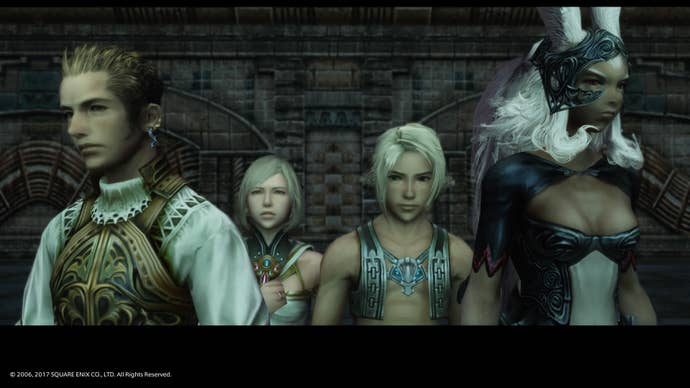
Why Is Everything 7/10?
The common refrain is that most reviews sit comfortably in the upper third of the review scale. If the scale is out of 10, then scores stay around the 7/10 or 8/10 range according to these folks. Surely, across the entire depth and breadth of game releases, there should be way more 2s, 3s, and the like correct, yes? I'd agree with that sentiment.
There are a few different issues endemic to all but the largest of sites, like IGN. Reviewers are self-selecting for the most part. Here at USgamer, we have a list of upcoming games and each member of our small team can select which games they want to review. That doesn't always work out: there many be too many games at any one time, a physical review copy may end up in a place where it's hard to pass it to the preferred reviewer, or Kat and I make a judgment call and send the game to another reviewer. Case in point, I originally signed up to review Final Fantasy XII: The Zodiac Age, but logistics meant Kat was the one that ended up doing it.
If you're ahead of the game, you see how this works. We are time limited. In addition to reviews, the average game journalist has to tackle news, features, interviews, video, streaming, and/or podcasts. Therefore, we tend to choose games that we either have some facility with or we know we already enjoy. There's only so many hours in the day, and there's very little reason to spend them on games you don't already lean towards. I don't play Souls games, so I don't choose to review Souls games. I love open-world titles, so I elect to review Assassin's Creed and the like. We do occasionally put someone on a game or genre they're new to in order to offer a different perspective, but it's rare, because again, we're time limited.
The games that review poorly tend to be titles that we expected to be better or ones that are so technically poor that they're unplayable. Kat likes the Valkyria Chronicles series, but Valkyria Revolution was a disappointment to her, scoring it a 2 out of 5. Former writer Bob was the same with Star Ocean: Integrity and Faithlessness, which he gave a 2.5 out of 5. It's rare we run into games that are just technically broken all around; I'm talking beyond the occasional glitch. (Oddly enough, folks also hate it when a reviewer has a game-breaking bug and that does affect the review.)
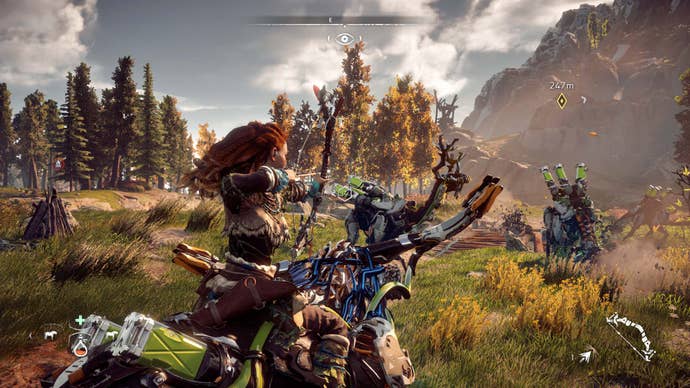
Are You Afraid of Publishers?
Not really. Blacklisting isn't that big of a problem these days, as many publishers tend to frown on the practice. Even if it was an issue, outlets can always buy a copy of a game for review. That tends to put us under a bit of a crunch - readers lose interest in most reviews outside of launch week - but it's nothing journalists haven't dealt with in the past. Sometimes games are given to us at embargo, like Bethesda titles or many online games. Sometimes the wires are crossed and we don't get a review copy. No harm, no foul. Even the few cases of publishers disliking a review haven't harmed USgamer. It's a terse note from PR or we simply don't get the next game from that publisher. We adjust and move on.
A much larger issue for most journalists isn't publishers, but the audience.
A low review score can bring down the hounds of hell upon any one reviewer. Without opening up an old wound, one of our biggest reviews in terms of comments was for Horizon Zero Dawn. Technically, the game was amazing, but the experience Caty found within felt rote and average to her. That's fair enough. We stand behind the review as an outlet. I disagree personally, but that does not change the review itself.
This disagreement happens at a number of sites I'm sure. Here at USgamer, most won't give Assassin's Creed the time of day outside of myself. Kat really enjoys Final Fantasy XV, but Caty and I dislike it. In the latter case, the only difference between the 4 out of 5 the game received and a potential 2.5 out of 5 is the fact that Kat was the reviewer instead of me. I don't particularly have an issue with the fact that our outlet gave the game 4, despite me disliking the game. It's Kat's viewpoint. Our differing views can and do co-exist.
Reviews are relating our views on a subjective experience. Are there objective measures inherent to games? Of course there are. A game can falter in the execution of its graphics or story, it can lack content, it can stand below similar games in its genre. But by and large, most measures of review are subjective.
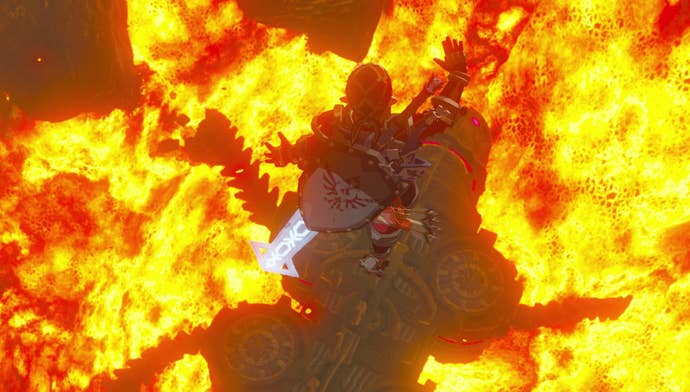
The Legend of Zelda: Breath of the Wild has some graphical issues related to the prowess of the Switch and Wii U; there's aliasing, poor textures, and it had some frame rate drops. That might severely turn off some players. For me, the art style and presentation remains great for the most part and lacking that graphical prowess didn't take away from the game as a whole.
If you quizzed a broad stretch of players to score Breath of the Wild, their scores would vary, because they prize different measures. The game is objectively the same, but the interaction is different. You may feel it's a revolution in gameplay. I may feel it's more of a polishing of mechanics available elsewhere. That can affect a review.
When push comes to shove, I'm always more worried about how the audience will react to a review score than a publisher. With games like Ultra Street Fighter 2, I can sit for hours with my review text, mulling over the score. Does my text support the score I'm giving it? How much nonsense will I have to go through if I'm far outside the review average?
Trust me, reviewers are more afraid of fan outcry, which can delve into some dangerous level of harassment, then we are of a publisher blacklist.
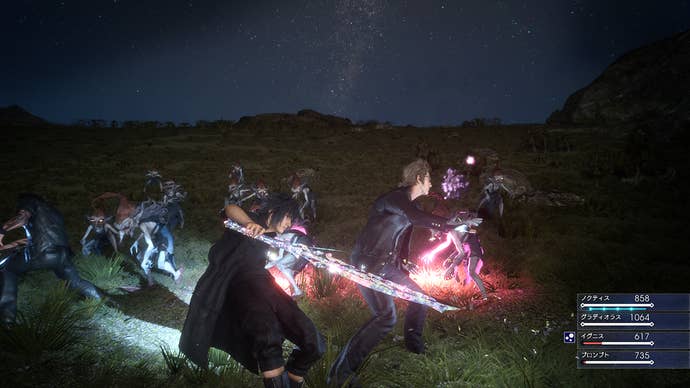
How Can You Think X and Better Than Y As an Outlet?
Given everything above, it's kind of a folly to attempt to parse out "USgamer thinks X is better than Y via review scores". We're a collective of different minds and over the course of our five-year journey, multiple people have moved on to other pastures. Even within a specific writer, preferences can change over time. The same is true of much larger sites, especially places like IGN and Polygon, who have far more resources, including freelancers, to call on.
We generally don't have to time to revisit our list of reviews two or three years back just to make sure that your console war discussion has a leg to stand on. If I give every Assassin's Creed game a 4 out of 5 and Nadia reviews it one year, giving it a 2 out of 5, there's far more behind that than just X is better than Y. People were constantly trying to point to our 5/5 review of Breath of the Wild in comparison to Horizon. That makes little sense: they're different games, Caty and I are different people.
Which is to say, follow the byline on any outlet. Find a reviewer whose viewpoint syncs up with your own. This is easy on most sites, as clicking on a writer's name will take you to the rest of their reviews. Here's my page on USgamer. Hell, even aggregate sites like OpenCritic - my page there - make it easy to figure out a reviewer's tastes. The field is wide. Whether it's written or on video, I'm sure there's multiple reviewers out there who share your viewpoints. Spend time pumping them up rather than hunting down another reviewer who disagrees with you.

Why is This Review About Something Other Than X Facet of the Game?
To answer this, you have to look at the function of reviews. Ultimately, we reviewers are no different from you, our audience. We're people who love games and we hope to connect you with games you may enjoy. Reviews can and do run the wide gamut between offering purchase decisions and offering a critique or analysis of the game in a larger context. Every review leans in a direction and some go farther than others.
I find my reviews are written more on the "purchasing decision" side. I know money is tight and I want to make sure that if I recommend a game, that you know it's worth your time and money. I'd say Caty is more on the "critique and analysis" side and I'm always fascinated about the deep and interesting angles she has on games. Neither of those directions are "wrong".
I don't always want critique. I don't always want a pure product review. Maybe you prefer one or the other. It's a matter of perspective. And that's fine. The world is big enough for all of us.
Basically, I'm here trying to say, "Chill, y'all". This doesn't have to be a war. Someone can dislike something you like. That's fine. They may even do so professionally. They may point to a facet of your favorite game and an issue with the industry or culture at large. That's fine as well. We're all in this together and reviews aren't meant as an attack upon yourself and your livelihood (even if you're a developer). "I think Final Fantasy XV is bad because X" is room for discussion and civil disagreement, not hate.
Just remember that next time someone gives a Zelda game a 6 out of 10.
If you have any questions about reviews and whatnot, you can hit us up in the comments below. We'll do our best to answer.
Kat's Obscure RPG of the Week
Since Final Fantasy XII is out this week, let's talk about its spinoff: Revenant Wings. Yep, no one really remembers this, but Final Fantasy XII received a spinoff on the Nintendo DS starring Vaan and and Penelo as airship pilots.
At the time Square Enix had a bit of a thing for real-time strategy, so while Final Fantasy XII looks a lot like its forebearer Final Fantasy Tactics Advance, it's actually a mission-based RTS along the lines of Heroes of Mana. Our old boss Jeremy Parish reviewed it back in the day (which you can watch above), and he was... lukewarm on it? In any case, the video is worth watching just to see them actually drink one of the promotional potions from Final Fantasy XII, which even I wasn't brave enough to do back in the day.
Nadia's Note Block Beat Box: Guild (Breath of Fire III)
I'm currently in between RPGs -- a rare condition that will shortly be remedied with Final Fantasy XII: The Zodiac Age. So I'm taking a little time for myself and playing through Breath of Fire III, a classic PlayStation RPG I keep coming back to for weird psychological reasons.
Breath of Fire III's soundtrack is more good than great. It's very jazzy and upbeat for the most part -- barring the tunes that are straight-up lifted from other RPGs -- but it doesn't grate on you after many hours of play either. It's just solid.
Breath of Fire III still has some stand-out tunes, however, and my favorite by far is "Guild." Guild has a little more edge than most of Breath of Fire III's song catalogue, certainly on purpose. You first hear it when you enter "Junk Town," which is aptly named for the broken bits of mysterious machinery that lie everywhere in huge drifts. "Guild" signals that the game's story is about to take a sharp turn from "Boy goes on aimless adventure" to "Well, I guess we're going to go talk to God now."
Guild also reminds me a great deal of West End Girls by Pet Shop Boys. Is it inspired? It'd better be.
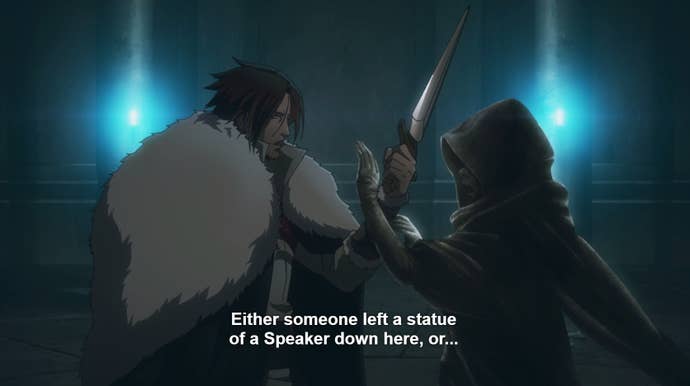
Matt’s Monday Mornings
So I sat down and finished up Netflix's Castlevania this weekend and I actually really dug it. Keep in mind, I've never played a Castlevania game beyond Castlevania: The Adventure on the Gameboy, which I don't know if you know— is very hard.
Still, I enjoyed my time with the animated Netflix series, which ends just as it was getting really good. Mike is going to be giving his full review of the series later on so I won't go into too much detail here. If you've been curious about the show, it's definitely non-commital given its two-hour runtime. Hopefully this means good things for the longer, second season which will premiere at a later time.
This actually doesn't mean I'm sold on the planned Assassin's Creed anime just yet though. Over-the-top violence works with violent series like Punisher and Castlevania, but fell flat with for me in the gritty Power Rangers fan film. For what it's worth, I'd prefer a more subdued Assassin's Creed adaptation (though I hear the live-action film went that route and was bad as well so, hmmm).
This Week's News and Notes
- This is Kat! Mike handled the editorial this week, but I'm still here for the news and notes. So here we go!
- Our Final Fantasy XII: The Zodiac Age review went up this morning. It feels like only yesterday that we were all complaining about the Gambit System and the move away from turn-based combat. Now Final Fantasy XII feels almost conservative in light of Final Fantasy XV's move toward a purer, more action-driven system. In any case, I really enjoyed my return to Final Fantasy XII. It's a first-class remaster of an overlooked gem of an RPG.
- Sidenote: I've seen a few people calling RPGs and turn-based combat "boring" of late, which makes the Blood God very sad. As an avowed RPG fan, the main reason I prefer RPGs these days is that they offer some level of depth that I find lacking in other genres. I like earning loot, fiddling with team compositions, and watching my carefully developed strategies come to fruition. By contrast, games that merely put me on a story-driven conveyer belt tend to leave me cold. Thankfully, it doesn't have to be one or the other—there are more than enough games to make everyone happy.
- The Nintendo 2DS XL randomly arrived today, prompting the quick unboxing video that you see above. First impression: It's a definite improvement on the New 3DS XL in terms of weight and ergonomics, and the screen seems... shinier? In any case, I think I found my new primary 3DS (or 2DS, I suppose). Look for our full review tomorrow.
- I'm not sure what's more surprising: The fact that Netflix Castlevania is a thing that exists, or that it's a faithful adaptation that's actually pretty good. Shame that it's only four episodes.
- Someone on Reddit was wondering if Rocket League is still welcoming to newcomers. Well, speaking from my own experience, I'm actually kind of afraid to go into Rocket League now because I know I'm going to get utterly destroyed by people who can do aerials and, you know, score. The same can be said for other games with a claim to accessibility like Overwatch and even Pokemon GO. Once the initial wave of interest dies off, the online community almost always skews hardcore.
- Sports Illustrated isn't generally known for their gaming coverage, but they just recently published this rather expansive oral history of NBA Jam. Read and be enlightened about the game that once featured Hillary Clinton as a playable character.
- Headline of the week: "Now That Mario is Immortal, Suffering is All That Awaits Him."
- Axe of the Blood God: In this week's Axe of the Blood God we finally (finally!) get around to properly reviewing Final Fantasy XIV's latest expansion. We also discuss Falcom, Breath of the Wild's DLC, and more!
- And as we head into another week of gaming, my question for you is whether you plan to pick up a Nintendo 2DS XL. Is the redesign enticing enough to drop the cash on a new version? Or is it too little, too late? Let us known in the comments!



